On June 22, 2017, James Martin, S.J., will speak via Skype to the predominantly “gay” parish of Most Holy Redeemer in the Archdiocese of San Francisco.
On the topic of Catholicism and homosexuality, Martin has stated:
“The idea that someone can come-out and be honest and transparent and open about the way that God created them, I think is terrific – it’s something the Catholic Church can support.” (see video.)
“It’s not a sin to be LGBT, that’s the way God created you. I think almost every psychologist, biologist, and scientists would agree with that…”
“Saying that one of the deepest parts of a person—the part that gives and receives love—is ‘disordered’ in itself is needlessly cruel.”
“…some of that language needs to be retired. I think language like ‘objective disorders’ – those kinds of things are very hurtful for people.”
“There is simply no group as marginalized in the Catholic Church as LGBT people. Sometimes they’re treated like lepers.”
“…the Church has been really good at writing documents about them [homosexuals], preaching to them, fulminating about them, tweeting about them, condemning them, but they don’t listen to them very much.” (see video.)
Interviewer: Scott is asking an excellent and provocative question: “Father the purpose of a bridge is to get somewhere; where do you see the bridge ultimately leading to transformation of Church doctrine that arises from a deeper personal understanding of the LGBT community or is the bridge merely a dead end to the status quo?”
Martin: The bridge is definitely not merely a dead end to the status quo…and I certainly don’t think the status quo right now is where we should be staying.
Interviewer: How can one respond to persons citing Leviticus and Corinthians texts condemning homosexuality?”
Martin: All these Bible passages that people throw at you; I think really need to be understood in their historical context. I mean Leviticus and Deuteronomy and even the stuff from the New Testament where Paul talks about it once or twice, has to be understood in their historical context…certainly in Old Testament times, they didn’t understand the phenomena of homosexuality and bisexuality as we do today.
“In his long ministry, his three year public ministry, Jesus says nothing about the topic.”
“I want to say for the record, I don’t think the media made too much of this [the 2014 Synod interim report]; this was in fact a change…this was a big change: ‘welcome,’ ‘partners,’ ‘precious love…’”
“…of course doctrine develops, obviously we can change our teaching on these things.”
“So when people say: ‘How can you be gay and Catholic?’ You tell them: ‘This is my experience – I was born this way…’”
Interviewer: Let’s assume you’re successful and churches open their arms to the LGBT community. Is it even possible for LGBT people to feel welcome in the Catholic Church?
Martin: Yes, and many parishes show what this means in practice. Of course, some parishes are more forward-thinking and have LGBT support groups, like the successful “Out at St. Paul” group at the Church of St. Paul the Apostle in New York.
Out At St. Paul
The Out at St. Paul Ministry, located at St. Paul the Apostle Church in the Archdiocese of New York, the mother church of the Paulist Fathers, has a long history of radical dissent with regards to pastoral outreach to those with same-sex attraction. In 2014, several members of Out at St. Paul launched the “Owning Our Faith” video series in they shared their experiences of being both gay, lesbian, bisexual, and transgendered as well as Catholic.
Here are a few excerpts from the program:
“God doesn’t make junk—we are His creation. And we might not fit into some traditional box of human relationships, or marriage, but our energies are real, our reality is real, and it’s not just a matter of accepting us, you have to, or tolerate us, you have to encourage us to be who we are. We are God’s creation, and to deny that is to deny that He knows what the hell he’s doing.”
“I’ve found a place where I can live as an out, gay man who’s dating, and has great friendships and has a full life and can also come every Sunday night and talk about faith.”
“My gender transition was immensely spiritual to me. It was a journey…I think a lot of people think of this as just a physical journey, they just look at the physical aspects of transition, but it’s an emotional one, it’s a spiritual one.”
“If we leave it, if we abandon the Church then it’s never going to change. So we have to continue living here, being an example and encouraging other people to be that example because that’s what’s going to change the Church.”
“I think what’s interesting is that the Catholic Church probably thinks that it is accepting of gay people, because its message is ‘gay people exist and we should love them and not discriminate against them. But because the Church also tells gay people essentially that they need to be celibate, what the Church is saying is ‘you cannot live fully. You can be gay but you can’t live that life.’ And so that inherently is discriminatory.”
Events and ideologies which have been sponsored and promoted by Out At St. Paul include:
Gay Pride Week “Vogue” dance class;
Mass at the site of the Stonewall Riots in honor of New York City Pride;
Celebrated the work of former Out at St Paul member and poet Ned O’Gorman who once wrote:
I would not be true to the depth of my love for the church if I did not hope that there might be further and courageous examination of homosexual love by the body of the faithful, homosexual and heterosexual. The church must find courage to bless those homosexual couples who affirm mutual fidelity, a common love, and the intention to build a life together in body and spirit till death parts them.
Held an official event at the Manhattan gay bar Bottom’s Up.
Promoted an article via their Facebook timeline about Queer Theology, here is an excerpt:
“Whether a relationship lasts a lifetime or only a few minutes, what might it mean to see the Christ in each person we encounter? For some people that will look like decades of monogamous togetherness, for others that might mean a kinky romp in a dungeon complete with paddles and consensual name-calling.”
Promoted the theory of a “Queer Mary,” “Queer Saints,” and “Christ’s Queer Family.”
Hosted a discussion with dissident gay priest James Alison who has repeatedly called into question Church teachings on homosexuality:
…the Church cannot say of the homosexual inclination that it is a desire which is in itself intrinsically evil, since to say this would be to fall into the heresy of claiming that there is some part of being human which is essentially depraved.
Honored two outspoken gay advocates in commemoration of the anniversary of the Obergefell decision legalizing same-sex marriage.
Most Holy Redeemer
In 2016, a man posted a sincere observation to the Most Holy Redeemer (MHR) Facebook post concerning the Parish’s “Reconnecting” program for Catholics who have been away from the Church; according to MHR, this program is suited for “those wanting to feel connected to an inclusive spiritual community.” The man wrote:
Apparently your version of “inclusion” does not include LGBTQ people, our relationships or our families. The Catholic catechism currently calls us “intrinsically disordered.” Who would want to “feel connected” to that nonsense?
Within a few hours, someone from MHR responded:
Hi [the man’s name], MHR is located in the Castro District of SF. Our congregation is 65 – 75% LGBTQ. Many of our parishioners are married to their same-sex partners and have adopted children which are baptized at our parish. BTW, none of the parishioners feel that we are “intrinsically disordered” and we have told that to the Archbishop.
Archbishop Salvatore J. Cordileone
One Peter Yorke Way
San Francisco, CA 94109
(415) 614-5500
info@sfarchdiocese.org
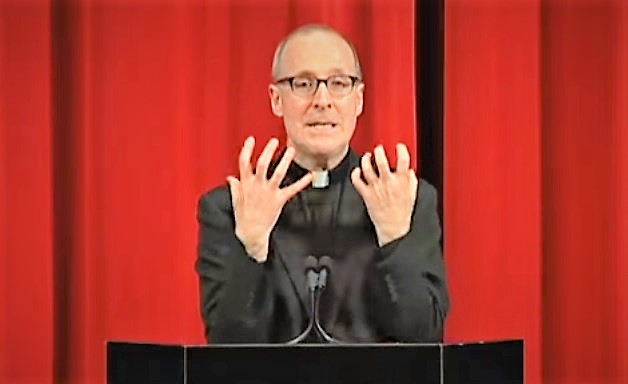
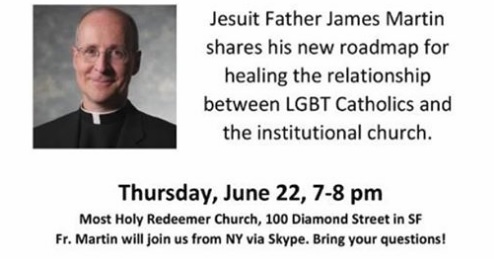
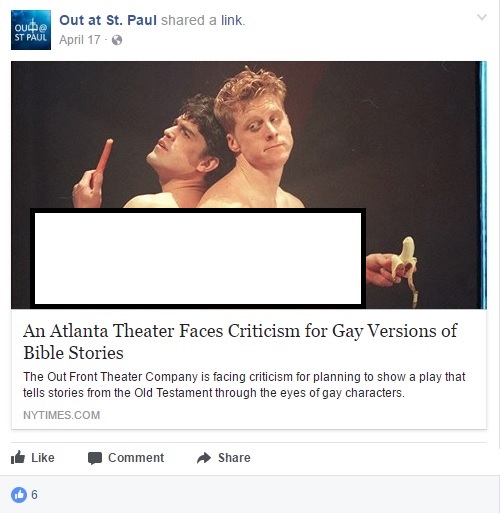
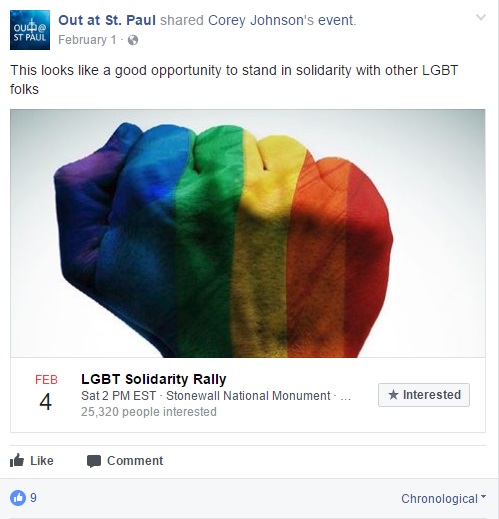


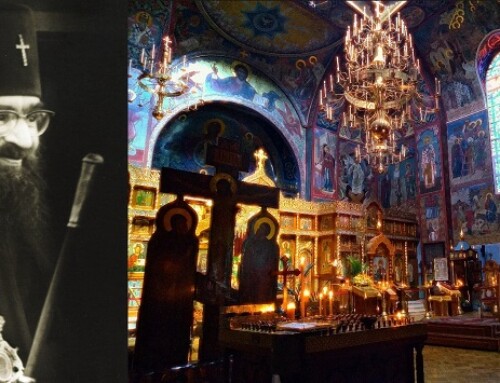

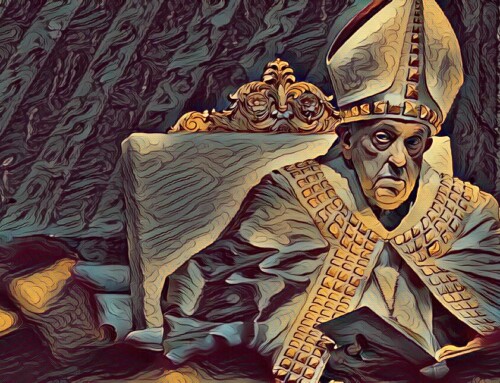
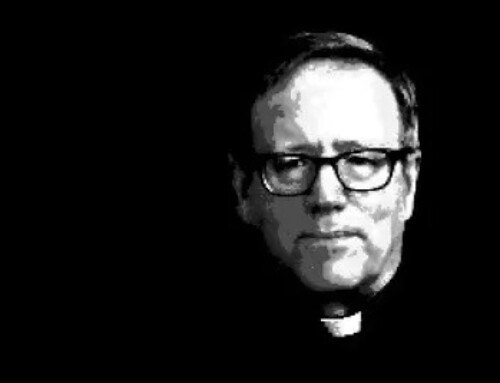
It gets a bit tiresome to hear the illogical ramblings of those who wish to justify the aberrant proclivities of their biology. By their logic, any manner of preference from pedophilia to necrophilia is justified because they were born that way, much the same way as one prefers tea to coffee. One is also given cause to question Father Martin’s objectivity on this subject.
“Father” Martin needs to be kicked out of the church immediately. Perversion has no place in Christianity……a sin is a sin, and it needs to be identified as such and eliminated.